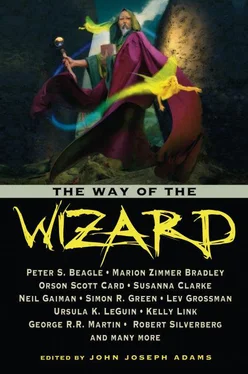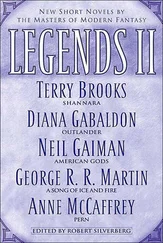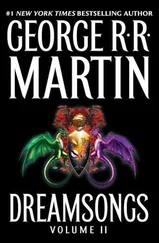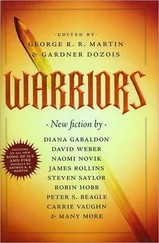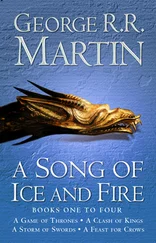“With this we can build a real school for women with talent, a place where they can learn to use magic safely and not have to be afraid of men,” she said, and her face began to brighten.
Proctor didn’t even think twice. “I’ll help any way I can.”
Rajan Khannais a writer living in Brooklyn, NY. His stories have appeared in (or are forthcoming from) Shimmer Magazine, Greatest Uncommon Denominator, Steampunk Tales, Shadows of the Emerald City, and Dreams of Decadence . He also writes about a variety of geeky topics for Tor.com, and about wine, beer, and spirits for FermentedAdventures.com. His writing has received Honorable Mentions in the prestigious anthology series The Year’s Best Fantasy & Horror , and he is a graduate of the Clarion West Writing Workshop. In addition to writing, he has also narrated stories for the podcasts PodCastle and Starship Sofa. Learn more at www.rajankhanna.com.
Our next story takes us to the American south, a land of riverboats, muddy water, and playing cards.
Whether it’s card tricks and sleight of hand, telling the future or constructing a house of cards — since their invention, playing cards have been put to uses that transcend the simple games they were created for. Once, only the wealthy and powerful owned them — each deck a hand-painted commission, a sign of their status. In Quentin Ketterly’s world, however, it is the possession of a deck of cards that makes a person powerful in the first place.
Quentin is a gambler with a very special deck of cards and an appetite for vengeance. But, as the author says, we all deal with limitations, in whatever worlds we inhabit, and in particular, the choice between serving yourself and serving others can be a struggle. And when you’re caught between love, loyalty, and revenge, making the wrong decision can be a deadly one.
Here we give you a new take on the wizard’s spellbook, in which a single ace can beat a royal flush — if it’s the right ace, played at the right time.
By the time Quentin reached the Ketterly Riverboat, he was down to thirty-seven cards, not counting the two Jokers. He ran his index finger along the edge of the deck, tucked securely in his waistcoat pocket.
He was unarmed, not the kind of man who ever felt comfortable with a pistol, though he had once regularly carried a knife on his hip. Back then, his playing cards had been as disposable as everything else in his life: his women, his possessions, his inheritance.
But he mourned the loss of each of these cards. Eight had been lost to his training — the Twos and the Threes. He lost two during the trouble in Missoula when he’d been caught with that Ace — a normal Ace, mind you — up his sleeve. Another went escaping a mudslide. And in Odessa, Texas he’d lost three fending off thieves.
But that had been all prelude. To this . The riverboat.
He reached into his pocket and withdrew the Seven of Diamonds. The card flared like phosphorous in his hand, then disappeared in a wisp of smoke. He felt an ephemeral film coat his body. He moved from his hiding place behind some trees and moved down the walkway and to the ramp leading up to the riverboat.
He could feel the stares of the riverboat guards on him, even though he knew they could not see him. Using the Seven of Diamonds might have been overkill, but better safe than sorry. Still, his neck hair prickled at the idea that at the moment, their rifles could be trained on him, preparing to fire.
He made for a small washroom near the center of the main deck. As he approached it, the riverboat’s great paddlewheel began to move, churning the water in a great roar. With a lurch, the riverboat began to move, taking Roland Ketterly and his men down the Mississippi.
Quentin slipped through the washroom door, taking care to close it quietly and minimize his noise. Whatever concealment the first card had provided was visual alone.
He drew the next two cards in his pocket. They were at the front, exactly how he’d arranged them. He removed the Jack of Diamonds and the Jack of Hearts, cupping them in his hands as if in a card game. It pained him to have to play two face cards, especially a Heart that could be used for healing, but he needed to ensure that the card he played had enough power to hold and convince the boat’s occupants. Quentin threw down the pair of Jacks.
He stifled a moan as his face seemed to turn to wax. The Diamond alone would have given him the disguise he wanted, but that wouldn’t have fooled anyone, especially with his voice and manner of walking unchanged. The Heart ensured the change was physiological, and though it disgusted Quentin to assume that hateful form, it was his best chance to move freely aboard the riverboat.
When the transformation was completed, he looked into the mirror, noting how eerily alike he looked to Roland Ketterly, the man he had come to kill.
Quentin could still remember the hands he’d played in that game in Tombstone. He had been having a glorious ride, the majority of the table’s chips arranged in a jagged mass in front of him. The old man he was playing against, however, was clearly irritated and with each hand — and each lost ridge of chips from the once great reef in front of him — his bitter scowl deepened.
Feeling flushed from his winnings and surrounded by ladies, Quentin had started showing off, demonstrating his legerdemain with the cards and chips, making them dart and dance and disappear. With each trick the women cooed and leaned closer. With every flourish, the old man’s displeasure grew.
In the end, he had taken almost everything. He packed away his winnings and retired to his room, leaving it unlocked should any of the ladies wish to join him. The old man, however, appeared, uninvited.
“What do you want?” Quentin said, thinking of the knife that now rested next to the room’s wash basin.
“I need that money,” the old man said.
“I won it fair.”
“I know. But I can offer you something for it. Something more important. Something more valuable.”
“What’s more valuable than money?”
The old man flashed a smile. “Power.”
Quentin kept his gait regular and his senses alert as he climbed the riverboat’s stairs to the upper decks. He’d long ago realized that anxiety and panic could be bigger threats than anything external. He’d managed to overcome them in card games and sleight of hand, but this, this was still relatively new to him.
The chatter from the crew below was swallowed by the roar of the paddlewheel. The sickly sweet mushroom smell of the Mississippi filled the air.
On the staircase he passed a member of the riverboat’s crew heading down. The man tipped his hat to him. Quentin grunted back in Roland’s voice, the way he had seen Roland do many times before. His heart beat faster in his chest. The man continued on his way, paying him no mind.
He thought of Roland on the highest deck, in his private rooms. The rest of the riverboat was given over to business — to passengers or cargo, traditional operations. But the top of the boat was Roland’s domain, it was from there he ran his empire. The empire that had once belonged to Quentin’s father.
Between shuddering breaths he reached the top deck, one hand on the polished wooden banister, the other, fingers outstretched, hovering over his waistcoat pocket. A man came out of one of the rooms, bearded, wearing a white coat. “Ah, there you are, Mr. Ketterly,” he said. “I wonder if you could come with me for a moment.”
Quentin could hear his pulse pound in his ears. “I’m in a hurry,” he said, in Roland’s voice.
“Please,” the man said. “It’s your wife.”
Читать дальше
